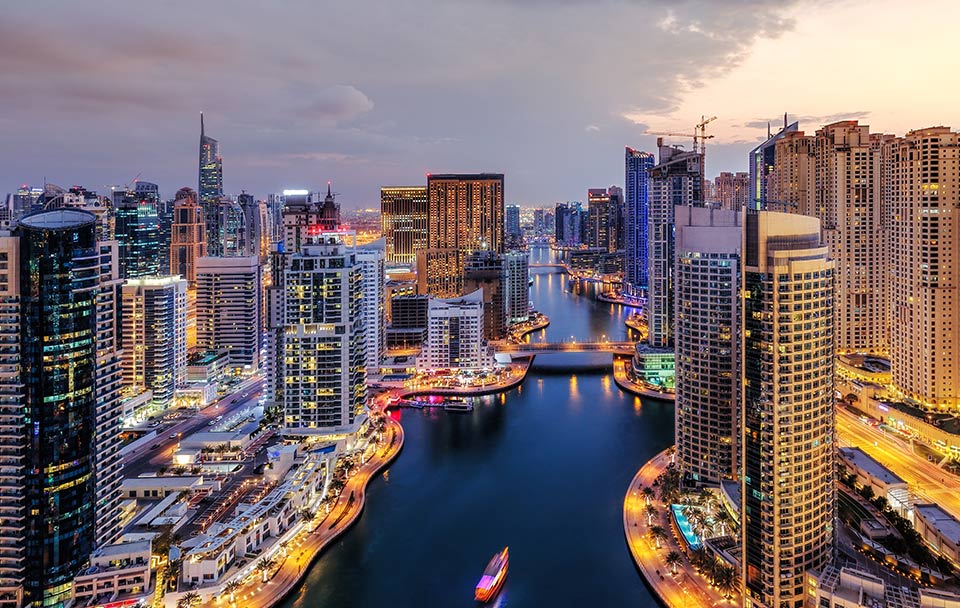
The only way ahead for Dubai’s Real Estate Sector
Dubai’s real estate sector has perpetually been a target of speculation. From the experts, to the misinformed, everyone has an opinion. But what truly lies ahead for this industry that has been a beacon of innovation and ambition for the rest of the world? I believe that we find it easy to generalise; but if we must understand the future of Dubai’s real estate sector, we need to break free from notions and look at things through the prism best suited for the multi-dimensional industry.
Let me start by shedding light on the sector’s history. We founded DAMAC properties in 2002, the same year when the government opened expatriate home ownership in designated free zones in Dubai. As an Emirati company, we were born with the idea of shaping Dubai in line with the vision of our leaders. In 2008, the market boomed, and Dubai became a centre of attraction for real estate aficionados and connoisseurs the world over. We were inspiring the world and innovating in ways that were never imagined before. Prices began to rise, and everyone thought that the music would never end. Then, the 2008 global financial crisis shook the world and Dubai’s real estate industry took a hit. Backed by government initiatives and with strong interest from investors enticed by price drops, the sector began to stabilise rather rapidly. But, like all setbacks, the crisis taught us many lessons and made us stronger. Dubai is known as the land of growth, the only way we have learnt to fight an impending challenge, is by growing further. This great country is built on an aspiration for more and the principles of free market and trade. Having led one of the biggest real estate companies in the UAE, I have always believed in building for the future, not just for today.
Real estate developers around the region are regularly asked about ‘oversupply’. Why would we build more, if sales are down? While sales statistics and numbers can potentially indicate growth, they are often not the cause of it. Investor confidence and sentiments play paramount roles in the real estate sector; after all, real estate is a long-term investment. I have always believed in the collaborative approach of UAE’s visionary leaders and their innovative policies to attract and incentivise global investors. Just when rumours of oversupply and slowdown were beginning to take root in the minds of investors, the government announced radical changes to its visa regulations, allowing investors, specialists and top performing students, to receive residency visas for up to 10 years. This remarkable move will certainly boost positive sentiments, strengthening the position of UAE as a global investment hub.
Furthermore, with Dubai Expo 2020 just around the corner, it poses a unique opportunity for the industry to attract investors. Recently, the Dubai Government raised its infrastructure budget by 20 per cent. This boost in infrastructure is sure to have a ripple effect on all related sectors, especially real estate. Dubai offers an endless scope for innovation and it is our responsibility to feed this country’s growing appetite for it. Dubai is a top tourist destination for people from all over the world; and this offers a unique opportunity for real estate developers to create a dynamic hospitality environment. Foreseeing this opportunity, DAMAC Hotels and Resorts, the hospitality arm of DAMAC Properties, has developed various luxury hotel apartments and hotels to meet the demands of all kinds of visitors.
A big question remains – Will prices continue to fall? In 2017, while the citywide prices fell by almost 2.5%, there were certain areas where prices recovered. Investors should keep in mind that price stabilisation is a gradual process and they should keep a close eye on market movements to make the right call. We all know that the longer the slump, the longer is its recovery cycle. In the past few weeks, oil prices have begun to rise, and if the trend persists, we should soon see a change in buyer sentiments.
We are also witnessing market maturity as developers look to capture shifting demographics. As the region’s middle class continues to grow, and a significant youth population enters the job market, more people are looking at buying, rather than renting, which presents a great opportunity to develop affordable housing.
Nonetheless, challenges play an important role in the growth of any business, it forces us to push past constraints and develop innovative solutions that address market needs. Being oblivious to impending and present challenges is no way to move ahead; and neither is being paralysed by them. When faced with a challenge, leaders must keep beating the drum and doing the right thing. I am a real estate developer, and I draw my inspiration from the city itself — a city that has taught me to be resilient, and to keep working towards achieving the impossible. The way forward needs to be in line with a simple fact — Dubai’s real estate market is one that has matured through time and experience, and the international appeal associated with it will only keep growing. This is a city of dreams, and as a leading property developer in the region, it is our responsibility to keep making these dreams come true.